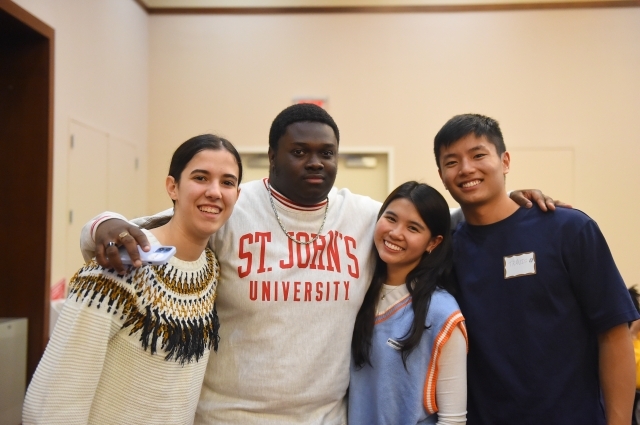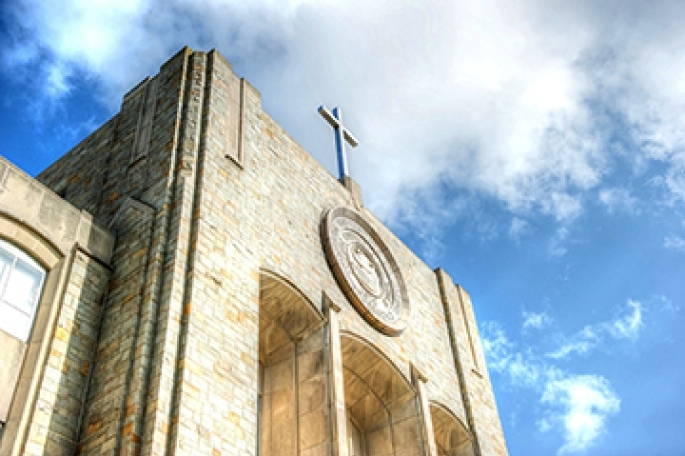

Office of the Provost
- Home
- Who We Are
- Leadership and Administration
- Administrative Offices
- Office of the Provost
Simon Geir Møller, Ph.D., serves as the Provost and Senior Vice President for Academic Affairs.
As chief academic officer, the Provost oversees the University’s academic programs, assessment, and research. In collaboration with deans and other senior administrators, the Provost ensures the quality and implementation of the University’s academic mission. Along with the schools and colleges, the centers, institutes, programs and groups listed below also report to the Office of the Provost.
Contact Us
Newman Hall, Second Floor
St. John's University
8000 Utopia Parkway
Queens, NY 11439
718-990-6309
Reporting to the Provost

Centers, Institutes, Programs, and Groups
Academic Center for Equity and InclusionCenter for Latin American and Caribbean StudiesCenter for Faculty Success and DevelopmentEnrollment ManagementOffice of Global ProgramsGrants and Sponsored ResearchGraduate Admissions Assistance ProgramHonors ProgramInstitute for BiotechnologyInstitutional Review BoardOffice of Distance EducationSpecial and Opportunity ProgramsUniversity Writing CenterWriting Across CommunitiesOffice of the Registrar
Learn More
- Victoria Balkon
- Heather F. Ball, Ph.D.
- Sean Brown
- Nancy Campana
- Adam Constantine
- Jessica Deleon
- Jacqueline Grogan, Ed.D., M.B.A.
- Christine Kenny, M.S.
- Gina M. Kilian, Ed.D.
- Michael Koskinen, Ed.D.
- Anthony C. Marziliano, Ed.D.
- Yasmin Mathews
- Simon Geir Møller, Ph.D.
- Karen E. Pennacchio, M.B.A.
- Christina Quartararo
- Nicholas Scott
- Linda Shannon, J.D.
- Kathleen A. Siano
- Martha Simone
- Samantha Wright
Featured News
From Classroom to C-Suite: Tobin Graduate Students Deliver Real-World Insights to The New York Post
More than 20 graduate students from the Peter J. Tobin College of Business stepped into the boardroom at The New York Post on December 2 to present cutting-edge research on...
St. John’s Junior Alexandra Cicala Secures New Funding to Advance Her Financial Literacy App, uFinLit
St. John’s University junior Alexandra Cicala ’27 has taken another major step in her mission to improve financial literacy among young people. The Business major on the Pre-Law track was...
Tobin Students Earn 2nd Place at the Alpha Seekers Invitational
Students from the Peter J. Tobin College of Business at St. John’s University made a standout showing at the Alpha Seekers Invitational, earning second place in the CFA-style equity research...

